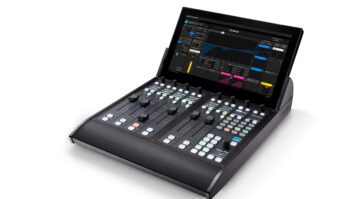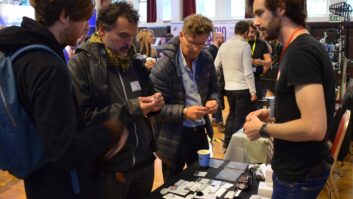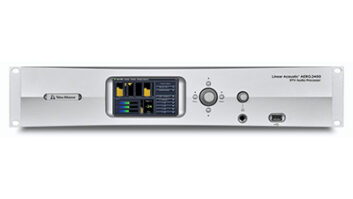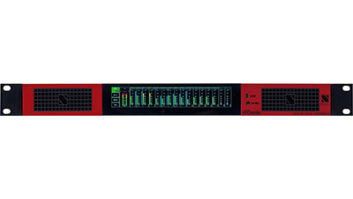Ryan Hennessey, audio describer at Take 1
Talk us through a day in your role:
As an audio describer, I help create the audio description track which makes TV shows and films accessible to visually impaired audiences. I’m responsible for writing the script for a narrator to describe what’s happening on the screen in the gaps between the dialogue.
I work with anything from animated short films, social media content and episodic TV, through to lengthier crime documentaries and full Hollywood films. It can take anywhere from 30 minutes to script a short advert, through to an entire day for a film. The time involved also depends on the genre – horror movies have much less dialogue than a drama, pacing is important, and you have to carefully choose which information is critical to support the story.
I usually start by watching the media all the way though, marking out where I’ll add in the audio descriptions. The first watch helps me pick out exactly what I need to describe for the listener. Then I watch it again, this time creating the audio descriptions as I go. After I’ve written the script, it gets sent off to be recorded, and I review the final audio before delivering it to the client.
How did you get started in the media industry?
When I finished my A-levels, my brother had just started a role at Take 1 in a similar department. I’d decided I wanted to start working rather than go to university, and he suggested getting in touch with Take 1. They brought me onboard for work experience, where I worked in a few different departments. The audio description department was relatively new at the time, and I enjoyed the work and found that audio description fit nicely with my interest in creative writing and film.
After my work experience, they offered me a position – and I’ve been here for four years now! They have such a varied offering, so it was a good way to find my niche in the industry.
What training did you have before entering the industry?
Before entering the industry, I’d taken my GCSEs and A levels. My GCSE in media studies and my A-Level in English language gave me a good starting point for the role, and I enjoy writing, which is what made audio describing a good fit, as there’s so much room for creativity when writing scripts.

Most of my training came directly from Take 1. When I joined the department, it was still relatively new, and I was trained by two audio describers – I shadowed their work, learning about different types of media and getting used to the writing style. They trained me on the software and eventually I had enough experience to write on my own.
Why do you enjoy working in the industry?
I have a passion for TV and film, and obviously creative writing. It’s interesting having to balance what’s happening on screen, selecting the most important visual information, and also making the descriptions interesting for any visually impaired viewers – we want the content to be just as enjoyable with audio descriptions as it is without them.
You also have to work around time constraints, getting the right amount of information and context into the often-small gaps in dialogue. And with film – you have to think a lot about set up, and how to convey minute but important details without giving too much away.
The audio description sector is expanding, which is such a positive thing – it feels good to be a part of a growing access service which helps more audiences engage with TV and film. It’s rewarding to be a part of that process, and I’d like to eventually be able to train and mentor new employees in the department.
What piece of advice would you offer someone looking to explore a role similar to yours?
Getting the hang of the role is really about practice, and you learn by experience. The more you write, the easier it gets to pick out which details are important. If you have an interest in media and you like being creative, it’s a great avenue to go down, and it’s rewarding to do.
It’s a growing industry too – UK broadcasters must provide audio descriptions for at least 10 per cent of their programmes and Ofcom is preparing to present recommendations to the government for quotas for streaming platforms and on-demand services. There’s a big drive to increase that number, which I support – there’s a whole demographic of people using this type of service as an aid, helping them better enjoy visual media.







